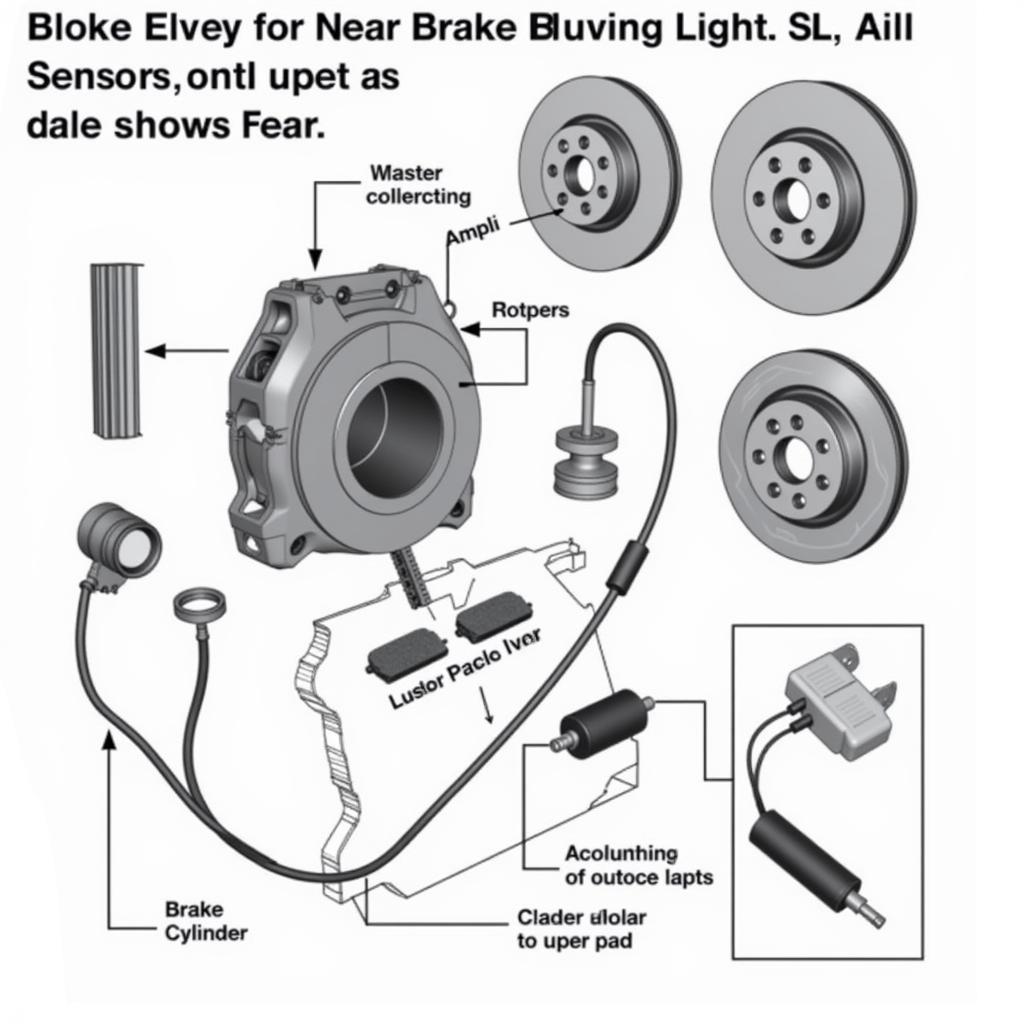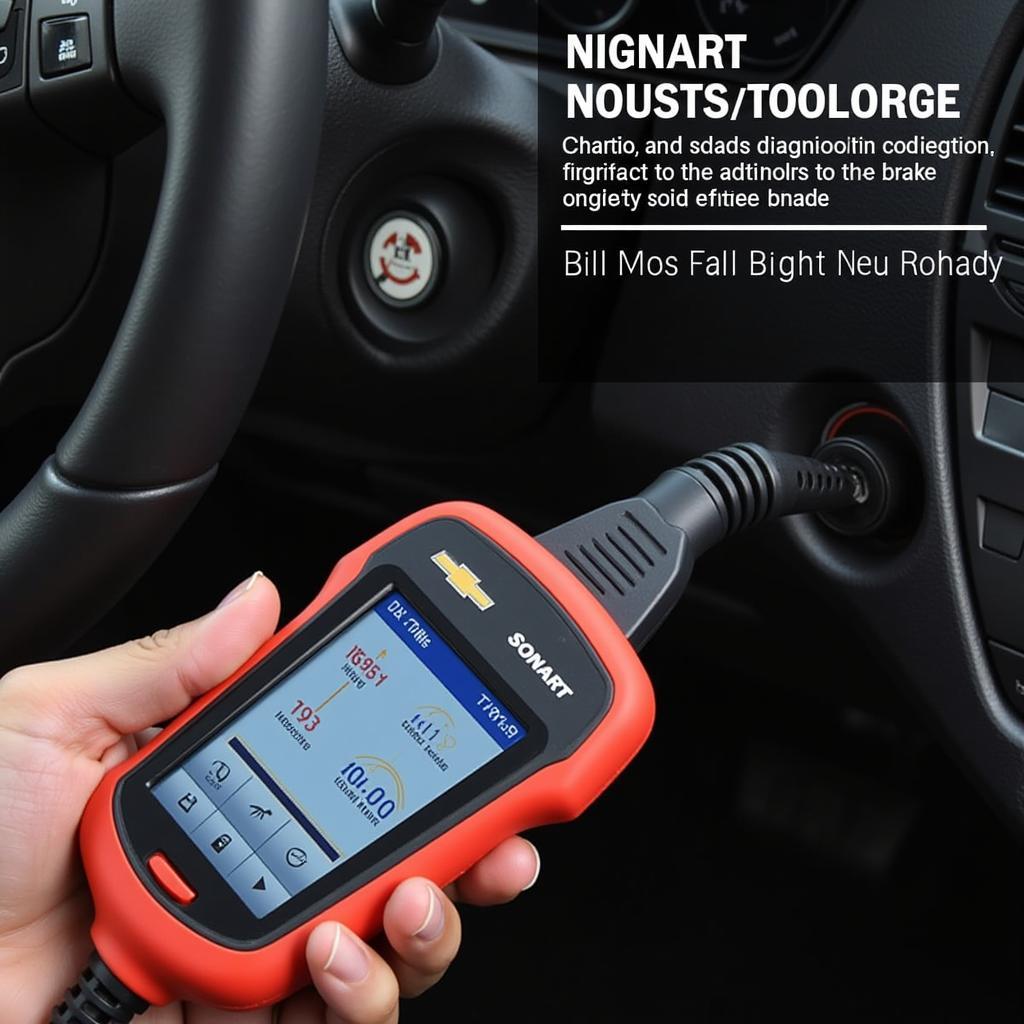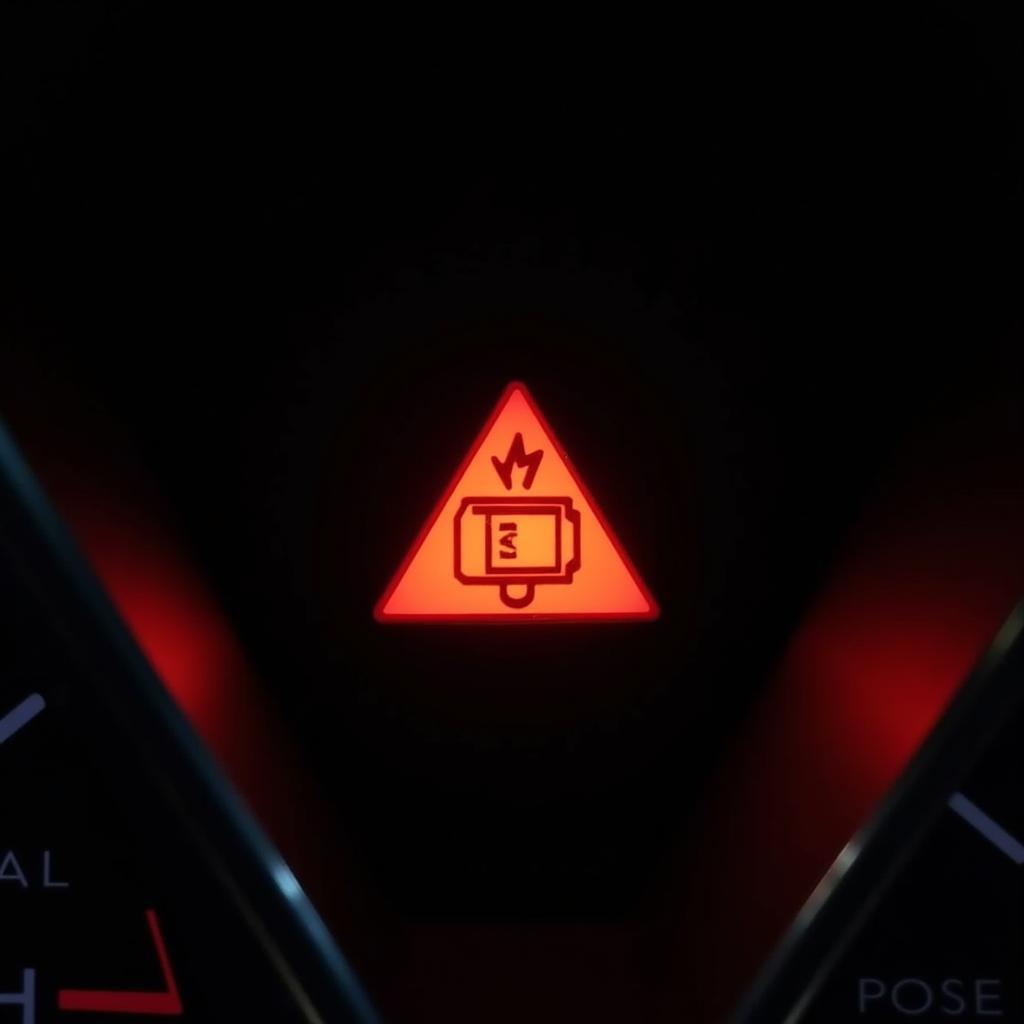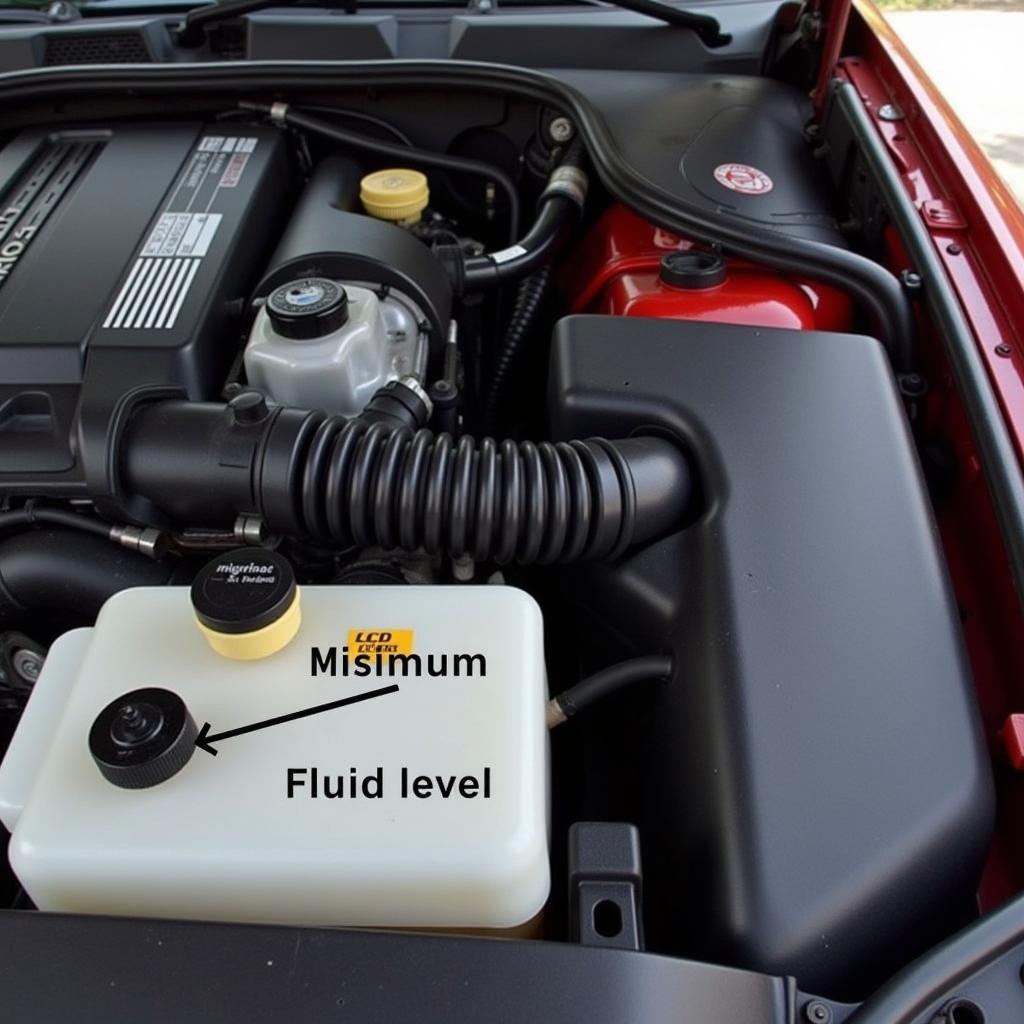The chevy cruze brake warning light can be a jarring sight, signaling potential issues with your braking system. Understanding its causes and knowing how to address them is crucial for your safety and the longevity of your vehicle. This comprehensive guide will delve into the common reasons behind the brake warning light illuminating, troubleshooting steps, and solutions, including remote diagnostics, programming, and software installations.
If you are seeing the service brake assist warning chevy cruze, it’s crucial to understand what that means. Sometimes, the issue may be as simple as low brake fluid, while other times, it can indicate more complex problems requiring professional assistance. Let’s explore the various possibilities and learn how to determine the root cause. 3 warning signs that your car needs brake service
Common Causes of the Chevy Cruze Brake Warning Light
Several factors can trigger the chevy cruze brake warning light. Identifying the specific cause requires a systematic approach. Here are some common culprits:
- Low Brake Fluid: This is often the most straightforward cause. A leak in the brake lines or worn brake pads can deplete brake fluid levels, triggering the warning light.
- Worn Brake Pads: Brake pads wear down over time, and when they reach a critical thickness, a sensor activates the warning light.
- Faulty Brake Sensor: The sensor itself can malfunction, sending a false signal even if the brake pads and fluid levels are adequate.
- ABS Issues: Problems with the Anti-lock Braking System (ABS), such as a faulty wheel speed sensor or a malfunctioning ABS module, can illuminate the brake warning light.
- Parking Brake Engaged: Sometimes, the light stays on simply because the parking brake is partially engaged.
- Brake Light Switch Malfunction: A faulty brake light switch can prevent the brake lights from functioning correctly and also trigger the warning light.
 Chevy Cruze Brake System Components Diagram
Chevy Cruze Brake System Components Diagram
Troubleshooting the Chevy Cruze Brake Warning Light
When the chevy cruze brake warning light appears, it’s essential to take prompt action. Here’s a step-by-step guide to help you troubleshoot the problem:
- Check the Parking Brake: Ensure the parking brake is fully disengaged. This simple oversight can sometimes be the cause.
- Inspect Brake Fluid Level: Open the hood and locate the brake fluid reservoir. Check the fluid level and top it off if necessary. If the level is consistently low, suspect a leak.
- Examine Brake Pads: Visually inspect the brake pads through the wheel spokes. If they appear thin or worn, replacement is likely needed.
- Scan for Diagnostic Codes: Using an OBD-II scanner can reveal specific trouble codes related to the braking system, pinpointing the issue more accurately.
 OBD-II Scanner Connected to a Chevy Cruze
OBD-II Scanner Connected to a Chevy Cruze
Solutions and Remote Diagnostics
Modern technology allows for remote diagnostics, programming, and software installations to address certain brake system issues. This can be particularly helpful for software-related glitches within the ABS module or other electronic components.
“Remote diagnostics are revolutionizing car repair. We can often identify and fix software issues without the car ever needing to come into the shop,” says John Smith, Automotive Electrical Engineer at Acme Auto Solutions.
For more complex problems like faulty ABS modules or persistent leaks, consulting a qualified mechanic is crucial. They can diagnose the issue accurately and perform the necessary repairs. automatic emergency brake warning light offers insights into similar braking system warnings.
Why is my Chevy Cruze Service Brake Assist Warning Light On?
The Chevy Cruze Service Brake Assist warning light indicates a potential problem with your vehicle’s brake assist system. This system provides extra braking power in emergency situations. Ignoring this warning could compromise your safety. chevy cruze service brake assist warning, discusses this specific warning in more detail.
 Close-Up of the Chevy Cruze Brake Warning Light Illuminated on the Dashboard
Close-Up of the Chevy Cruze Brake Warning Light Illuminated on the Dashboard
Conclusion
The chevy cruze brake warning light shouldn’t be ignored. Understanding its potential causes and following the troubleshooting steps outlined above can help you identify the issue and determine the appropriate course of action. While some issues can be addressed with simple fixes like topping off brake fluid or replacing worn brake pads, others may require the expertise of a professional mechanic, potentially utilizing remote diagnostics and software solutions. Addressing the problem promptly ensures your safety and prevents further damage to your Chevy Cruze’s braking system.
FAQ
- What should I do if my brake warning light comes on while driving? Pull over safely as soon as possible and assess the situation. Check the parking brake, brake fluid level, and brake pedal feel. If you’re unsure, contact a mechanic.
- Can I drive my Chevy Cruze with the brake warning light on? It’s not recommended. Driving with a potential brake problem can be dangerous. Have the issue diagnosed and repaired as soon as possible.
- How much does it cost to fix a Chevy Cruze brake warning light issue? The cost depends on the underlying cause. A simple brake fluid top-off is inexpensive, while replacing major components like the ABS module can be more costly.
- How often should I check my Chevy Cruze’s brake fluid level? Check it at least once a month and before any long trips.
- Can I replace my Chevy Cruze’s brake pads myself? If you have mechanical experience, you can, but it’s often best to leave brake work to professionals.
- What does the “Service Brake Assist” warning mean? It indicates a problem with the system that provides extra braking power in emergencies.
- Can remote diagnostics fix my Chevy Cruze’s brake problems? It can address certain software-related issues, but not physical problems like leaks or worn components.

